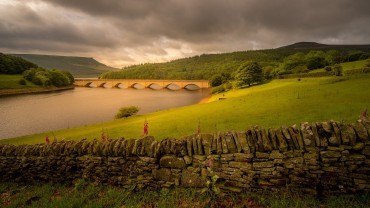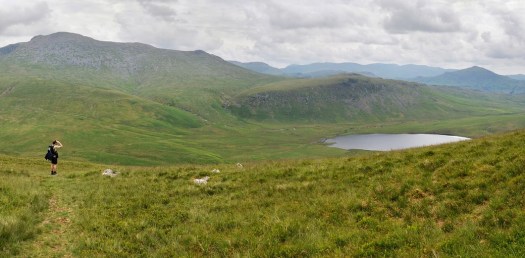I’m Americ an born and bred, raised in Southern California, so I never imagined that I didn’t really speak the language of my mother country. But after just a day on England’s Coast to Coast walk, I was a bit lost—not on the trail, but by the abundant British geographic and trail terms that were new to me and my American hiking companions.
an born and bred, raised in Southern California, so I never imagined that I didn’t really speak the language of my mother country. But after just a day on England’s Coast to Coast walk, I was a bit lost—not on the trail, but by the abundant British geographic and trail terms that were new to me and my American hiking companions.
Know before you go
Before you set out on a walk in Britain, make sure you understand some essential British English geographic terms. The names of the many lakes that dot the Lake District usually include the word water or mere, as in Ullswater or Windermere—so calling them Ullswater Lake or Windermere Lake would not only be redundant but would be a tipoff to all that you’re an outsider. A tarn is a small pond in a glacial bowl or cirque, known as a corrie or a cwm in Wales. A beck or a gill denotes a creek or a stream. If a creek or a stream moves fast or forms a waterfall, it’s called a force.
A rugged rock cliff is a crag, and a moor is a boggy, grassy area in a moorland. A fell is a hill or mountain, and a fell with a peaked summit is a pike. Names such as Stonewaite and Rosthwaite incorporate the Norse word for “forest clearing.” And a permissive path is a walker’s right of way across private property, not the road to perdition you might assume.
As you cross muddy ground you may benefit by walking on duckboards, those raised wooden slats placed to form a path to keep your trainers dry. If your guidebook tells you to “stay to the left of the grouse butt it would help to know that’s not a person, but a pile of stones that gives cover to grouse hunters. Along the route lie hundreds of stiles, or steps over a fence or stone wall. Be on guard as some will deposit you into a field belonging to a potentially aggressive bull A long detour around these pastures is often worth the extra effort.
- Grand Paradiso National Park - October 23, 2023
- Hikingand Walking in Provence - October 16, 2023
- Trekking Without Camping? It’s Doable in the Alps - October 10, 2023


